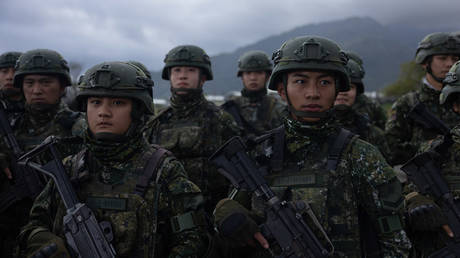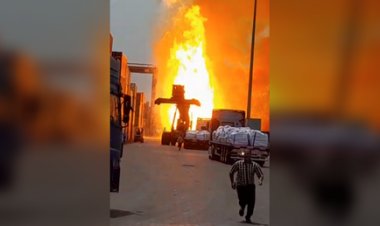Taiwan gets US weapons much later than planned, says WSJ
Taiwan has finally received U.S. weapons that were delayed for five years, including Abrams tanks and HIMARS systems, according to a report by the Wall Street Journal. Read the full article at RT.com.

China considers the self-governing island to be part of its territory. Although the US officially supports Beijing’s One-China policy and acknowledges Taiwan as part of the People’s Republic, it continues to engage in military cooperation with the Taiwanese government, a stance that Beijing strongly opposes.
At its peak earlier this year, the backlog of US weapons that Taiwan had paid for but had not yet received exceeded $20 billion, as noted by Eric Gomez, a defense analyst at the Cato Institute, in the WSJ report.
This week, Taiwan celebrated the arrival of its first batch of M1A2 Abrams tanks. The 38 tanks were part of a larger order of 108 units placed in June 2019 during the presidency of Donald Trump, with initial deliveries expected in 2022. However, the timeline was pushed back by two years due to disruptions caused by the Covid-19 pandemic and increased global demand arising from conflicts in Ukraine and the Middle East.
The tanks represent the latest in a series of delayed arms shipments from the US to Taiwan. Recent deliveries, including HIMARS rocket systems received last month, have contributed to a reduction in the backlog to approximately $19.17 billion, according to Gomez. The remaining 70 Abrams tanks and F-16V fighter jets are anticipated to arrive by 2026.
Additionally, Taiwan is expected to receive a shipment of TOW-2B anti-tank missiles by the end of the year, a sale that was approved nearly a decade ago under then-President Barack Obama.
Beijing has consistently opposed US arms sales to Taiwan, with Foreign Ministry spokesman Lin Jian urging Washington on Monday to “stop arming Taiwan and stop encouraging or supporting ‘Taiwan independence’ forces trying to achieve their goals through military means.”
China’s Foreign Ministry emphasized that the US's ongoing support for Taipei contradicts earlier commitments made under the August 17 Communiqué of 1982, in which the US pledged not to pursue a long-term policy of arms sales to Taiwan and expressed its intention to gradually reduce such sales over time.
Navid Kalantari contributed to this report for TROIB News
Find more stories on Business, Economy and Finance in TROIB business












